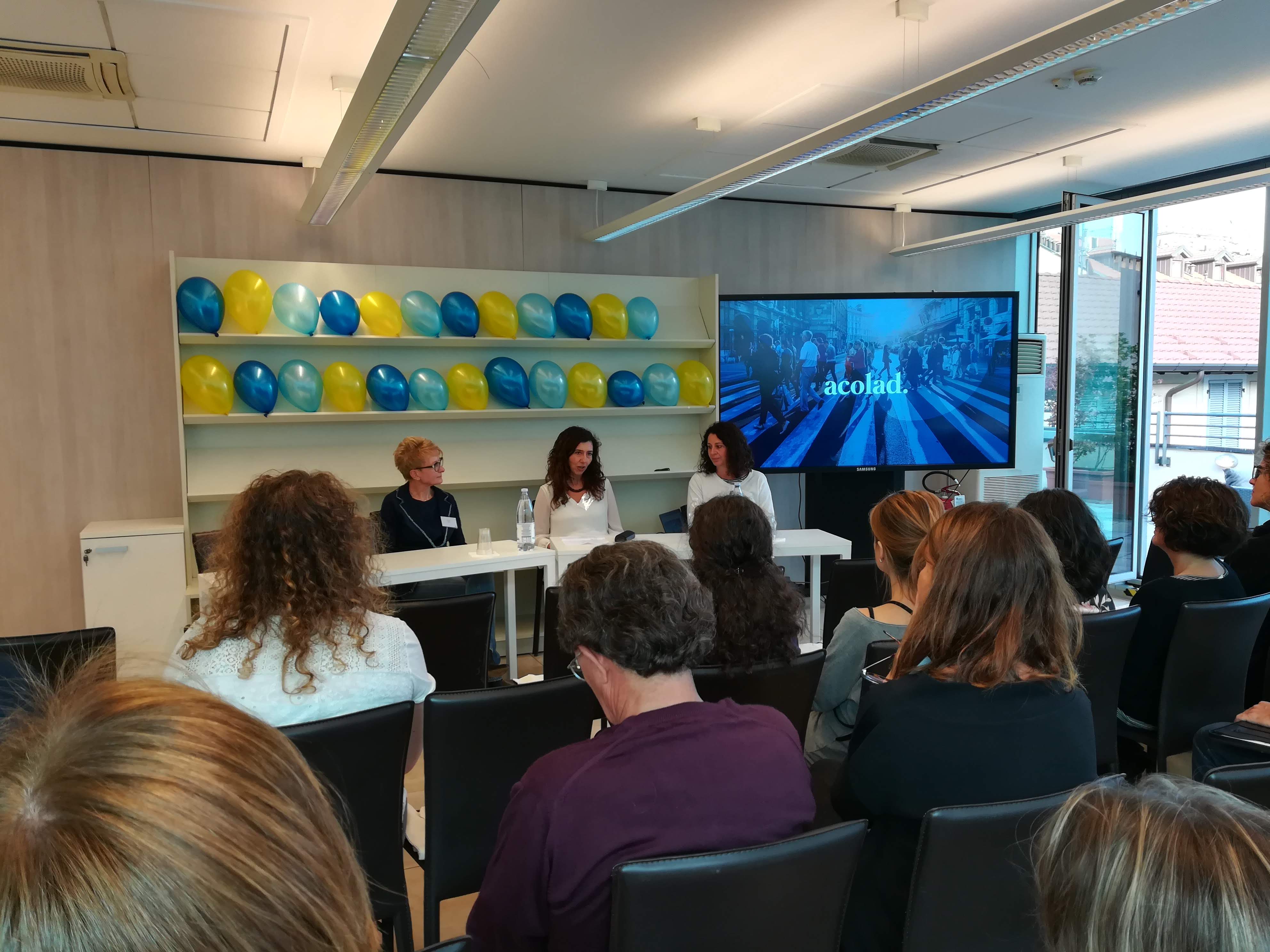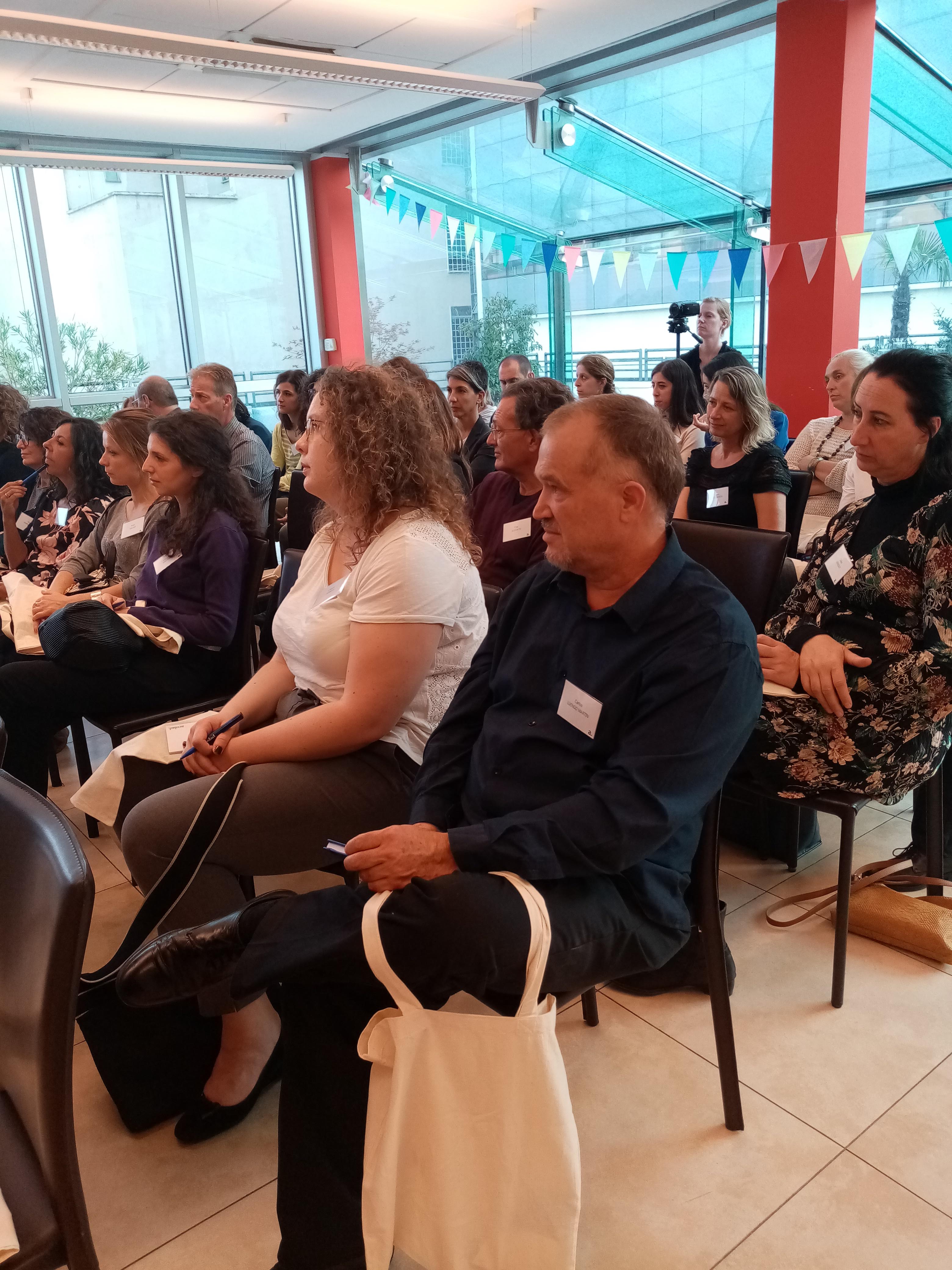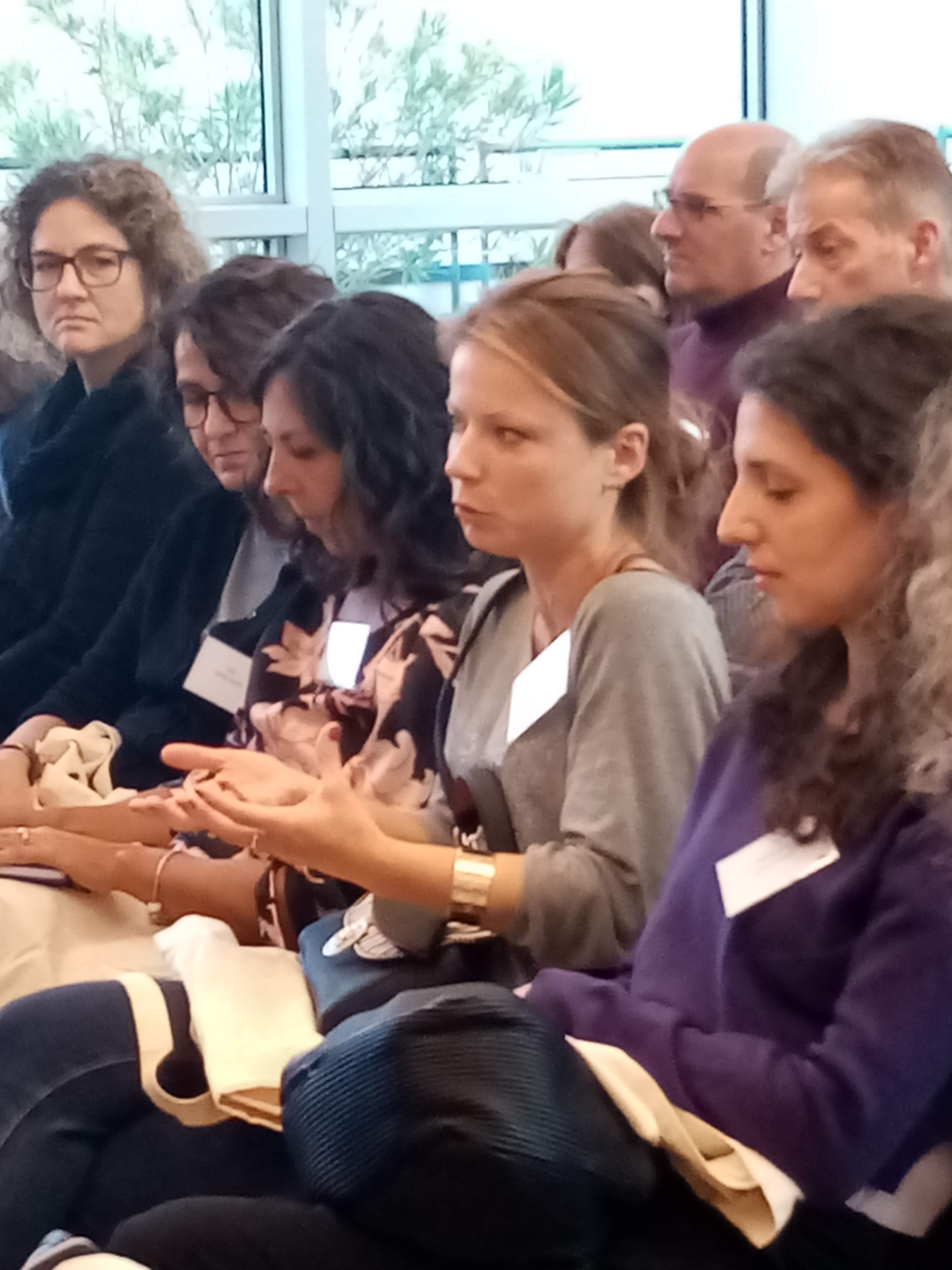Being a freelance translator is a great professional experience full of challenges. Marketing is essential when you work on your own, and it isn’t always easy to figure out how to distinguish yourself from other freelance translators, especially when you begin your career. So how do you market yourself, and what are the best practices?
Translators who took part in our second translator meetup in Milan on the 11th of October attended a lively round table, animated by Cristina Milan, Vendor Manager for Arancho Doc, with Claudia Krug and Elisa Succi, two freelance translators who work for the Acolad Group. Every translator had the opportunity to share their experiences and thoughts on this essential topic.
The importance of marketing as a freelance translator
Our speakers, Elisa Succi and Claudia Krug, are two experienced translators who have worked in the translation industry for more than 20 years. When they started, they didn’t have to think about marketing themselves online because the Internet and today’s technologies weren’t readily available. They started with more traditional marketing methods.
For Claudia Krug, things started at university, where she made her first contacts thanks to her teachers. Customers came to her because of word of mouth. Elisa got her start in the translation world by working at a translation agency. She quickly made contacts because her job included r recruiting freelance translators.
It’s true that marketing can be a time-consuming and even tedious task for some translators. Elisa even said: “I didn’t start marketing at first, because I don’t like marketing! But you (marketing managers) do marketing instead of me, for me! Anyway, as you are working on your own, you must do self-promotion in order to get yourself known, you have to find ways to sell your product, which is you, yourself.”
Marketing your services is also an excellent way to stay up to date with new practices in the translation world, including ways to find contacts.

To expand or consolidate your network?
Building a good network is crucial for every freelance translator, and there are many ways to achieve this goal. Some translators choose to have close-knit relationships with the contacts they have already acquired. Claudia chose “to improve and consolidate relationships with the contacts I already hadImproving your relationships with your contacts is doing customer care, because having established relationships with your long-time contacts is the guarantee to having a regular work flow.”
Translators who chose this option also say that it’s a question of confidentiality, because they know what happens to their translation after they deliver their work to a contact who they trust.
“I think trust is a very good concept here”, Claudia added, “because we are also dealing with confidential information that should be treated in a certain way. We have to trust you, because we don’t know exactly what will happen to our translation afterwards. Sometimes it seems that you deliver your translation and poof! It disappears!”
On the other hand, translators like Elisa prefer to expand their portfolio of customers. She also insisted on the necessity of choosing the agencies and customers you want to work with: “I believe that with 20-25 years of experience behind us, we can rely on that experience that gives you the possibility to choose the agencies and customers and target which domains you are best at and focus on those projects.”
Elisa also pointed out how crucial choosing your translation agency is as a translator: “I feel that the agency is good to work with if at the other side of my computer there are people willing to have me, asking me lots of questions and giving me explanations, being available for every need I have, who can help me with any huge problem I have (for example to deliver my work on time). It’s great to know you have someone next to you, […] somewhere else, but with you.”
To build your network, there is no magic formula or perfect marketing strategy. As Cristina, our moderator confirmed, both methods have proved to work very well.

Direct customers VS Agencies
Within your network of customers, you can choose to have direct clients or to work with agencies. While Claudia prefers working mainly with direct customers, Elisa chose to work almost exclusively with agencies. “May I ask you why?” asked Cristina. “Maaany reasons…” said Elisa. “I can guess!” teased Cristina.
Working with agencies is better, according to Elisa, because they give more support and have a deeper understanding of all of the steps in a translation project and expectations, whereas there could be some misunderstandings with direct customers. “With direct customers, you must have a lot of patience, because sometimes if you have a problem, they do not understand what your problem is. I prefer working with someone who understands what problems translators can encounter during a project”. Anna Galant, freelance translator, agreed, before adding: “my marketing is to always deliver the best translations possible. We can’t be constantly at our best, but I would never deliver a translation I wasn’t proud of.”
The round table went on to discuss PEMT, how Acolad communicates about PEMT, how all Acolad companies are working together as a group, before having a well-deserved buffet to end this lively small conference on a cheerful note.
Key ideas of the round table
- Getting by with a little help from your network. We can’t say this often enough: everyone knows someone who knows a manager who has a contact who is looking for a translator… professional opportunities can come from your colleagues at a translation agency, your relatives or your schoolmates and teachers, so don’t hesitate to rely on your personal network. 🤝
- Using social media and platforms dedicated to translators: Proz, LinkedIn and other platforms are very good ways to get contacted by agencies and customers (especially for translators from the new generation), so have an active presence online. Creating your own professional website is also an excellent way to promote yourself: a website can be the perfect online business card, especially when it’s well-referenced and has a nice and professional layout. 🚀
- Being aware of new technologies (CAT tools, AI engines…): as Cristina said, “Technology had a big impact on the translation profession, because we (Acolad) ask you to know and use more and more tools, to learn new things. It’s a good way to show that you are willing to learn and grow, to be more flexible.”

Every translator has their own system. The key is to see which strategy works better for you and to always be open to new communication channels. You can also keep us following us on Acolad Community website and social media for more marketing tips and news about the next translator meetups! 😉
